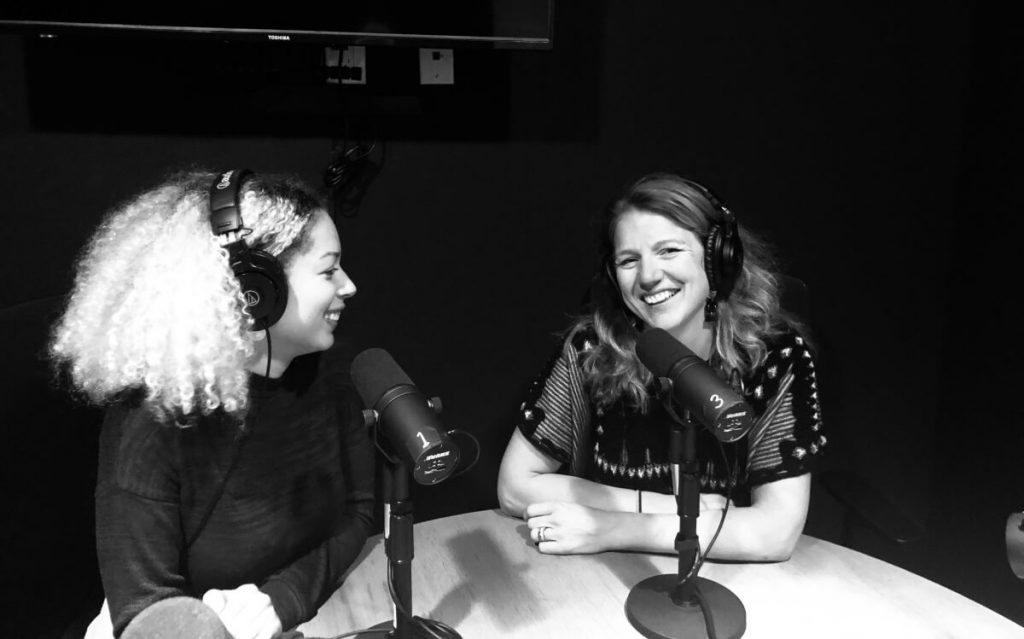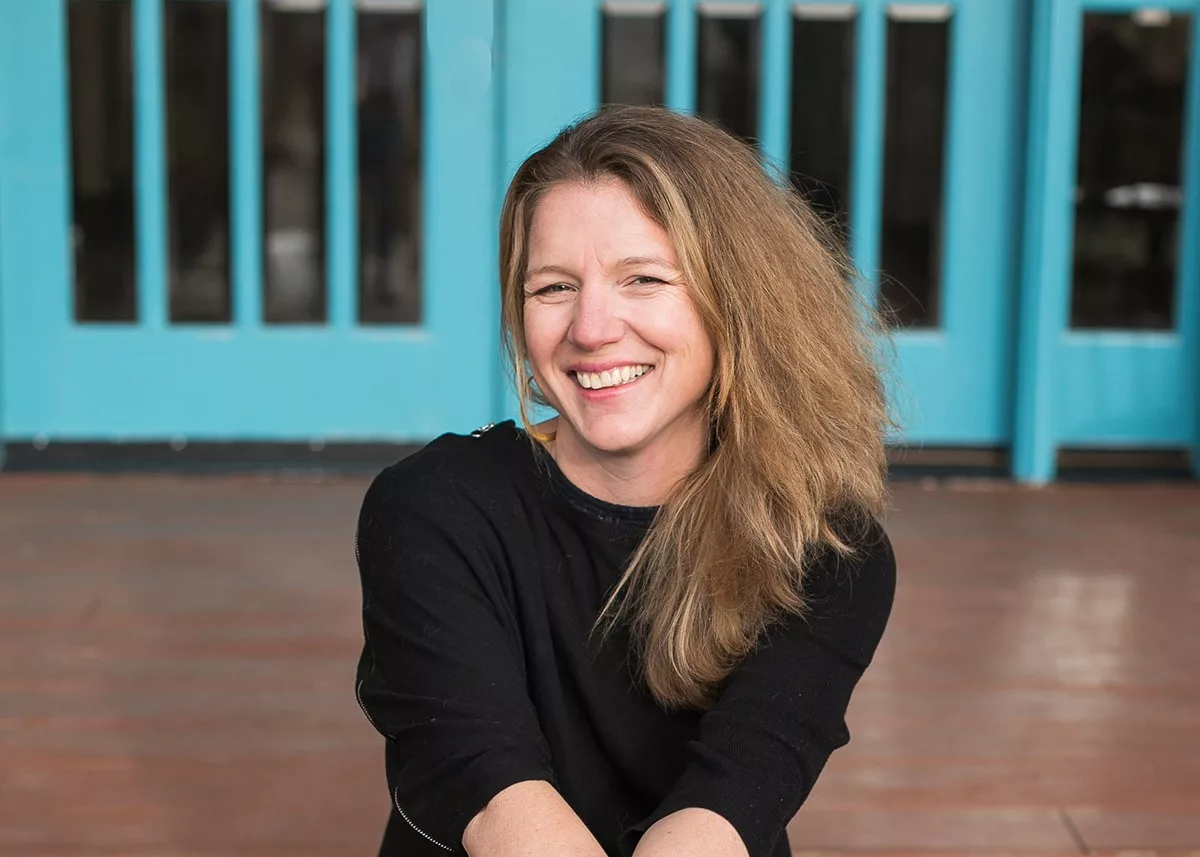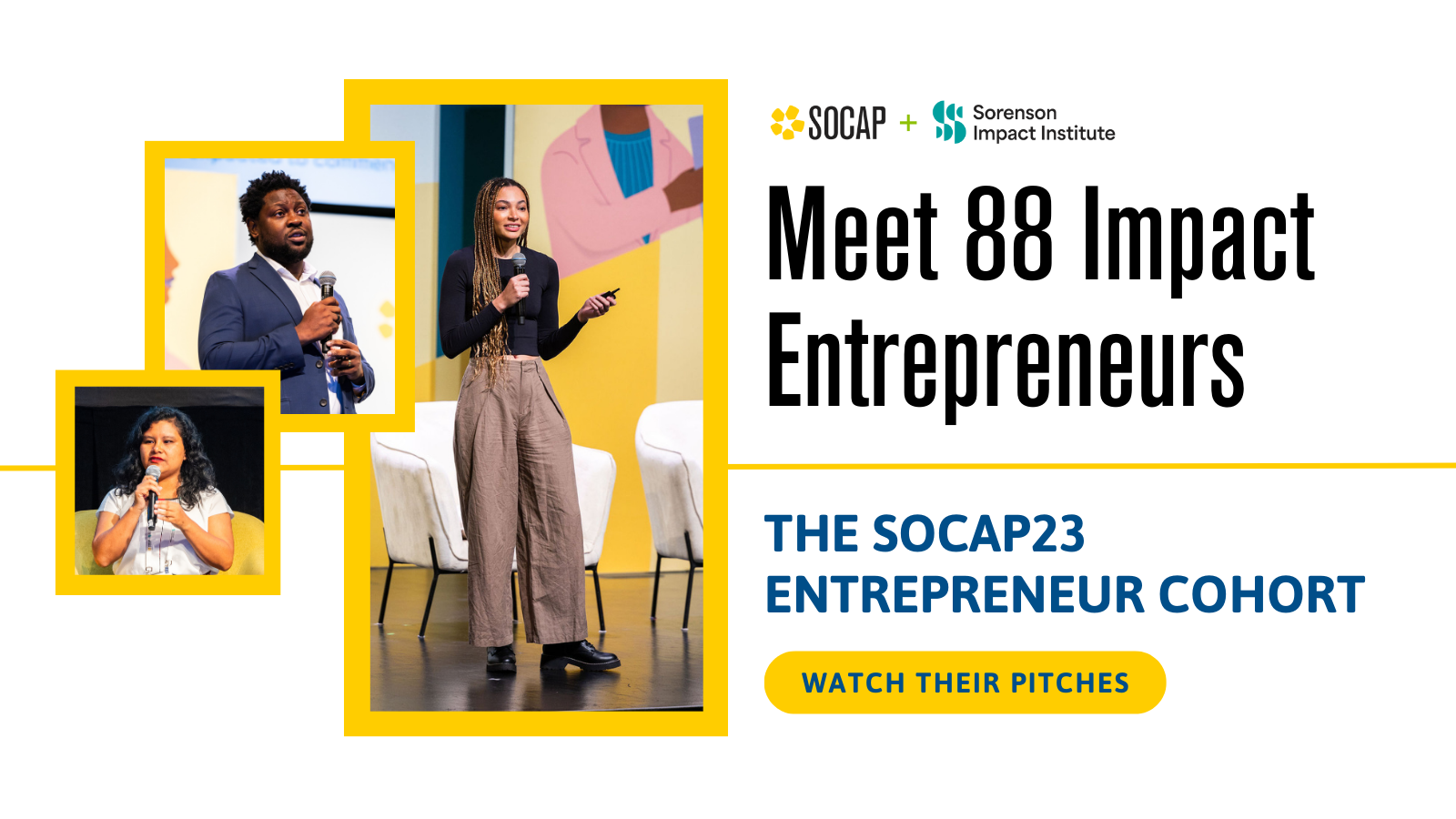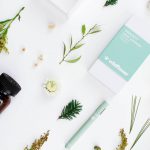Photo by Kate Spencer
This article is part of a series, The Wisdom of Women: Bold Insights From World Change.
“Shame dies when stories are told in safe places.”
— Ann Voskamp
Imagine a society where women are encouraged to speak, participate, and lead. Can you? Or does it feel more like the world John Lennon famously pined for in “Imagine”?
Seeing and hearing women speak their truth empowers women who are listening to do the same. The more women we have who are speaking their truth, the more women we have in important conversations. And the more women we have participating in important conversations, the more issues that affect women and girls will be discussed. The more issues that affect women and girls are discussed, the more women will be incorporated into decision-making roles. When women are incorporated into decision-making, solutions based on equality, cooperation, listening, and vulnerability are introduced. When solutions based on equality, cooperation, listening, and vulnerability are introduced, prolific and world-changing solutions are created.
And that is exactly what Juliette Roy, founder of Be Your Change, is creating. I had the pleasure of interviewing Roy and discussing this ideal vision and why it is all so important.

Let’s start with the basics. Why did you start Be Your Change, and why does it matter?
Juliette Roy: The Be Your Change podcast was created to inspire people to create positive change, consume less and better, use empathy as a tool of resistance, and take actions big or small that have an impact on the world. I know a lot of us feel a sense of urgency right now because it’s past time for women to have more power and recognition in our society.
The Be Your Change podcast was created with two ideas in mind:
- to inspire people to create positive change, consume less and better, use empathy as a tool of resistance, and take actions big or small that have an impact on the world.
- to educate about the impact of living in a male-dominated media ecosystem and the needs to bring more women voices to media .
The Be Your Change podcast was created because:
- Only 7.4 percent of the nation’s commercial TV Stations are owned by women.
- Only 10 percent of the top Apple podcasts in the U.S are produced by from women.
- Only 5 percent of the people creating sounds and messages in our lives are women. (Women’s Audio Mission)
- Only 26 percent of characters in a leadership role in a movie last year were women.
We want to answer the question, “What would the world look like if women were in control of what we saw and listened to?”
Your philosophy is really about inspiring women to do small things that make a difference, one episode at a time. How do you balance wanting everything to be different today with realizing that even the smallest things make a difference in the big picture over time?
JR: Thinking about doing everything can be overwhelming and exhausting. It gets discouraging. And a lot of pressure. But if you start small, you can get small wins. Small wins add up. And when a lot of people are having small wins, it adds up a lot and you have big impact. It’s also easier for people to jump on board. It takes some of the pressure off when we can say, “Here. Just do this one thing. It will matter.” The outcry over plastic straws is a perfect example of this. Some people say, “Do plastic straws really matter? There are so many other things we need to do too.” But not using plastic straws is easy. And it does make a difference. And once you realize it was pretty easy to give up plastic straws, you have the energy to think about what else you can give up or change.
I love the phrase you use, “empathy as a tool of resistance.” What does that look like in practice?
JR: After the 2016 election, people were outraged, sure, but they were also confused. They were asking questions that came from a place of empathy and compassion like, “How did we elect a president who has no empathy?” And now we are asking, “How do we move people from outrage and confusion to action?” That’s what empathy does. It allows you to start healing and to try to understand the situation of other people. It helps cross bridges and make connections. It takes the focus off just you or your needs and guides you to look at the bigger picture — from ‘me’ to ‘we.’
In addition to sharing the stories of women who are changemakers, you are also creating a media platform so other women can host their own content. Why are both of these things necessary to create change?
JR: When we watch the news or read our news apps, there is so much negative news: pollution, equality, climate change, and politics. You start to feel like you don’t know what to do to make any of it better. But the world has been designed by the media to make us feel that way. If you know where to look, there are lots of people doing lots of amazing things. Hope is being buried by the media. We are part of the movement to create news that tells the truth — but also provides hope. I want to share the stories of changemakers, and I want to provide a platform so that other people can share what brings them hope and what solutions they see to the problems we have.
Part of your long-term vision includes a fund and an accelerator to help women get early-stage funding and training to launch their own media. Why is this so important?
JR: I’ve thought many times, “If I were a guy, people would give me money to play with and just see what works or what doesn’t.” But women don’t have that opportunity. You have to prove so much — go through so many hoops. I meet so many women who have these great visions. And great visions have a lot of moving parts. And for a lot of moving parts you need support: a team, a network, resources. People say, “You are trying to do too much.” And that’s just because we don’t have access to all the support that men do. I want to see what will happen if someone gave us $2 million to play with. What would the result be from using it to create an incubator and platform for women? What would the impact be?
You talk a lot about community and using Be Your Change to amplify community. Why does this matter?
JR: Community gives you a sense of belonging and brings you out of isolation. It helps you connect with people who understand your message and what you are trying to do. And that is rewarding. I’m meeting all of these women with whom I share the same values all the time. We share the same desires for making the world better. And it makes me happy. I feel like I am not alone — there are others like me. And that brings hope. We start to ask, “There are a lot of us. So now, how do we get together to support each other?” Support validates your work, helps you feel like you are on the right path, and gives you access to the right resources. Also, community brings education, and education is power. A lot of times we feel like we can’t make a difference. But, when we become part of a community of people who are making a difference, that is powerful. If we don’t know that the products we buy are hurting someone or bad for the planet, how will we know to stop buying them? But, once we start learning that we need to buy things that are fairly produced from companies that are paying a living wage — and we know why — trafficking is involved or it is bad for the planet — we can make better choices. And then we can share this knowledge with our community. This creates a second community between the people who are consuming, the people who are selling, and the people who are creating. It also creates a higher demand for products that aren’t hurting anyone. The higher the demand, the faster we will see more and more corporations make changes that have better impact.
Creating a whole platform. Launching an incubator an investment fund. Those are big goals. Since your brand is all about starting with a small win, what is one of the smaller things you are doing today to change the status of women in the media or to help more women who are doing amazing things get into media?
JR: We are having our first podcasting retreat this March. In honor of our understanding of how hard it is for women to get access to things, we are offering two full scholarships as well as a payment plan. I really want to use this time to get a group of women ready to launch their voice and share their message. This will be a small win that leads to many more wins!
*Important Note: It’s not just women that we need to give a space to. We need to create media that is diverse and full of people who identify with all the different aspects of gender.
See the rest of this series at The Wisdom of Women: Bold Insights From World Change.







